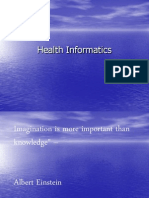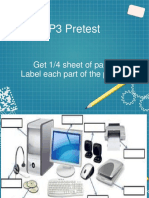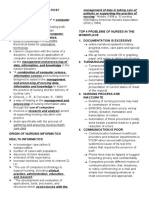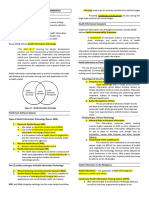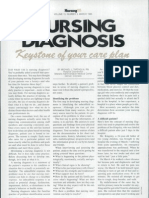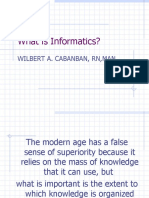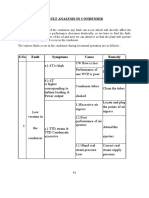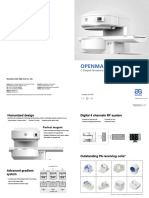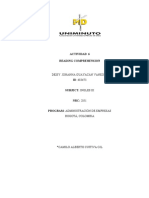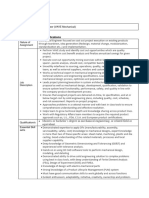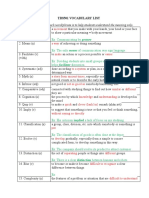0% found this document useful (0 votes)
361 views38 pagesWhat Is Informatics
This document provides an introduction to nursing informatics, including its objectives, definitions, key concepts, and competencies. The main points are:
- Nursing informatics combines nursing, information science, and computer science to manage and communicate healthcare data, information and knowledge. Its goal is to improve patient care through optimized information management.
- Informatics is not synonymous with technology alone. It involves organizing and mastering knowledge.
- Informatics competencies range from basic computer skills for beginning nurses to conducting research and influencing policy for informatics innovators.
- The roles of informatics nurse specialists include projects management, consultation, education, research, and decision support to optimize clinical information use.
Uploaded by
api-239123914Copyright
© © All Rights Reserved
We take content rights seriously. If you suspect this is your content, claim it here.
Available Formats
Download as PDF, TXT or read online on Scribd
0% found this document useful (0 votes)
361 views38 pagesWhat Is Informatics
This document provides an introduction to nursing informatics, including its objectives, definitions, key concepts, and competencies. The main points are:
- Nursing informatics combines nursing, information science, and computer science to manage and communicate healthcare data, information and knowledge. Its goal is to improve patient care through optimized information management.
- Informatics is not synonymous with technology alone. It involves organizing and mastering knowledge.
- Informatics competencies range from basic computer skills for beginning nurses to conducting research and influencing policy for informatics innovators.
- The roles of informatics nurse specialists include projects management, consultation, education, research, and decision support to optimize clinical information use.
Uploaded by
api-239123914Copyright
© © All Rights Reserved
We take content rights seriously. If you suspect this is your content, claim it here.
Available Formats
Download as PDF, TXT or read online on Scribd
/ 38










